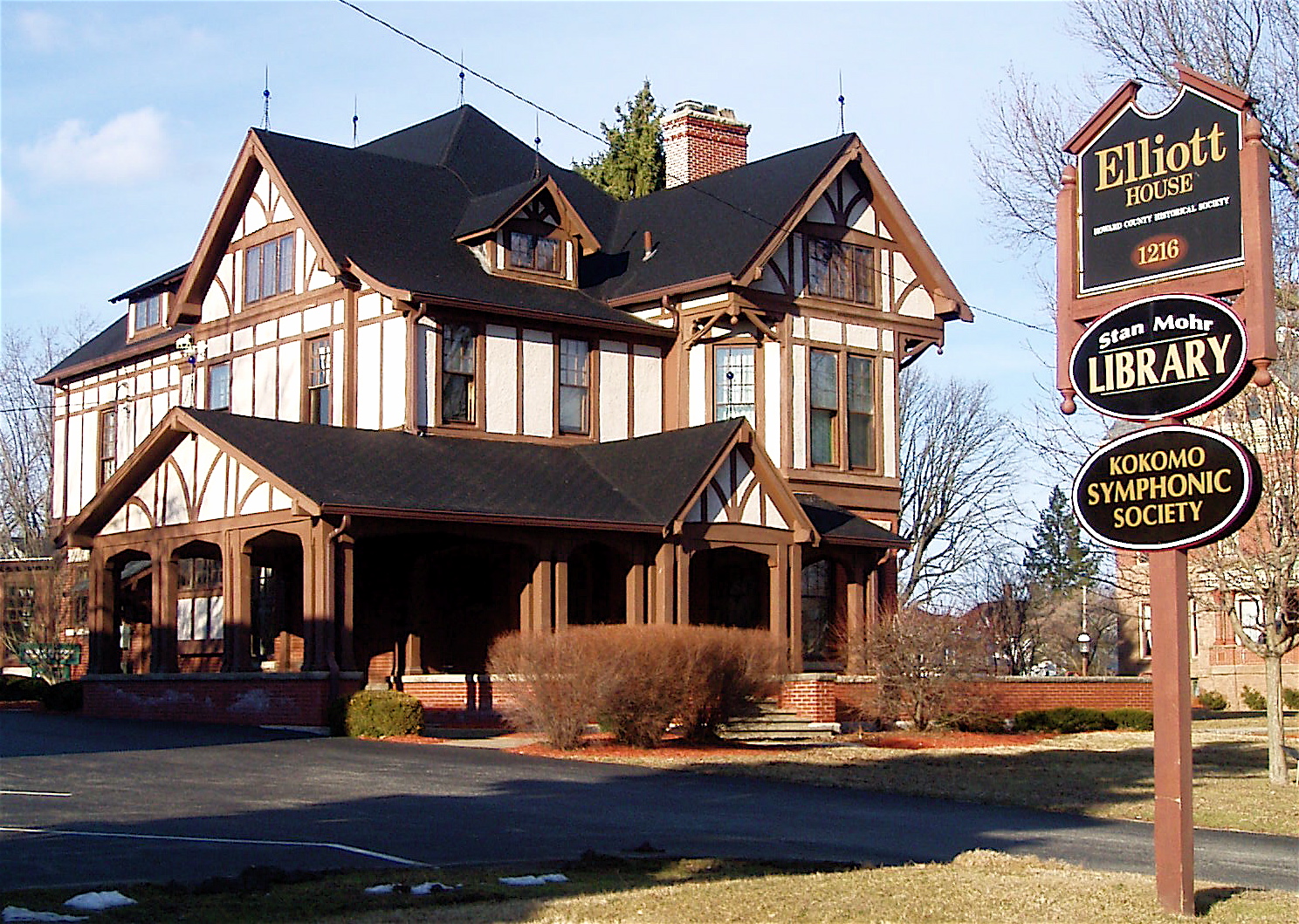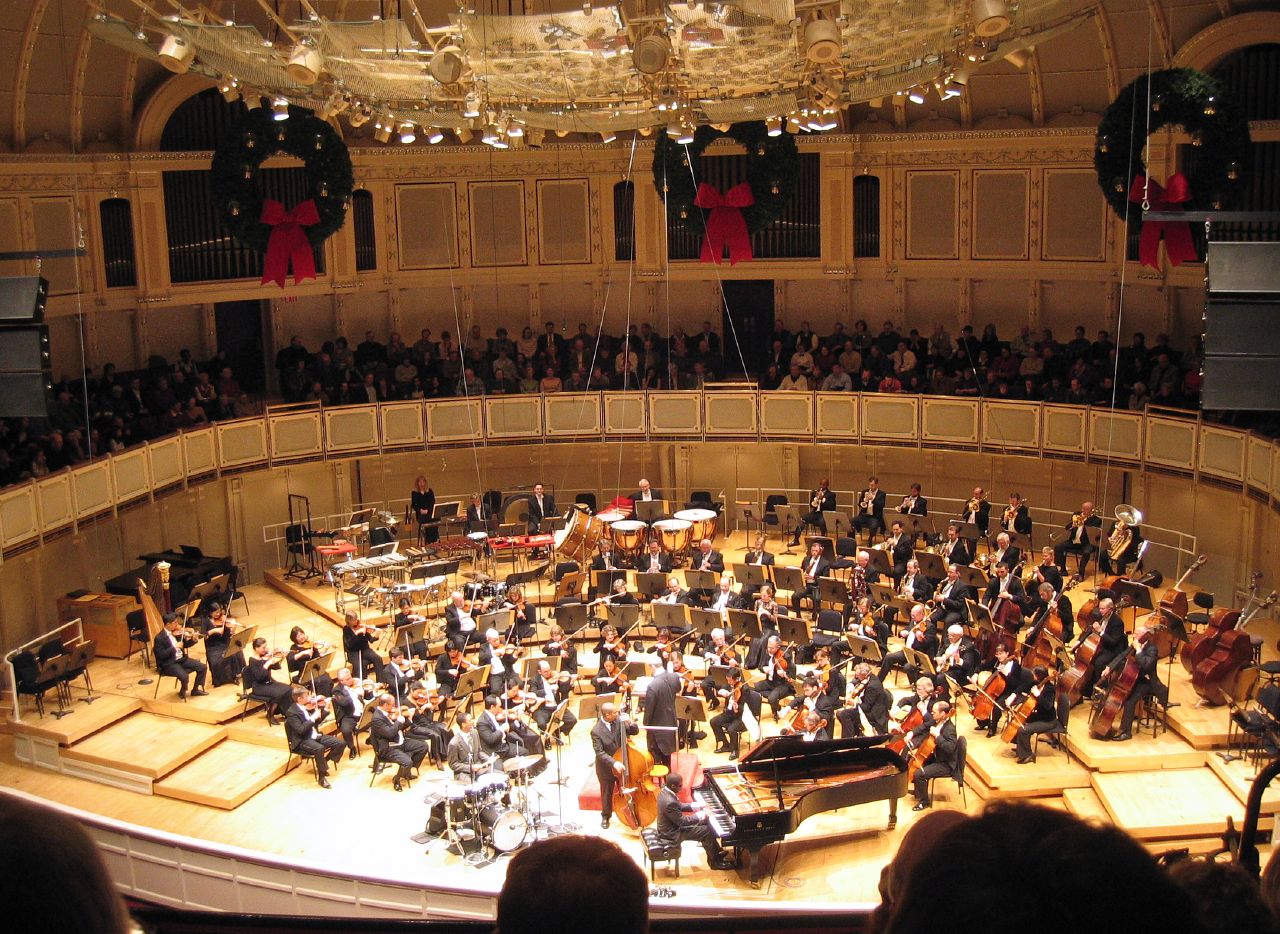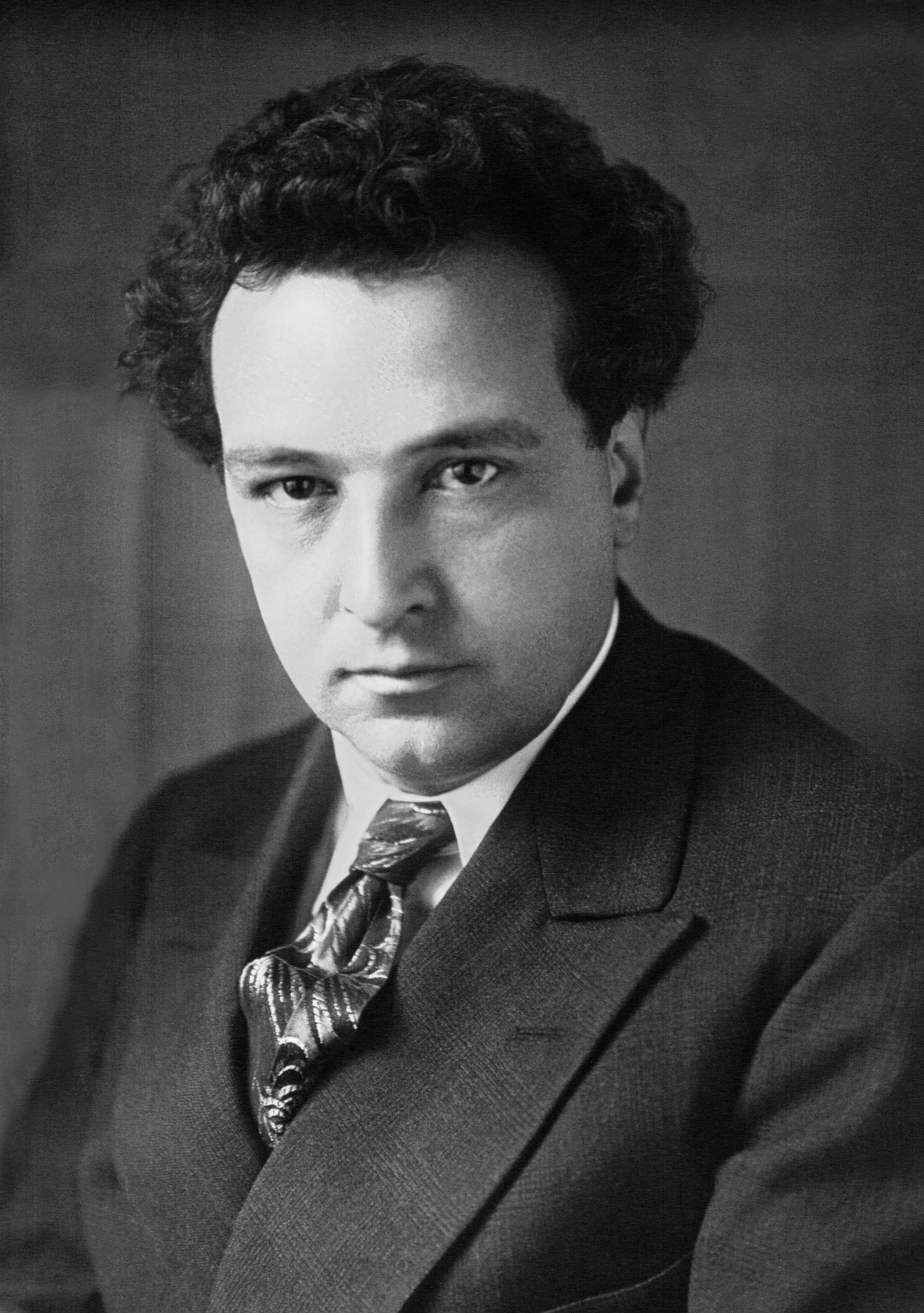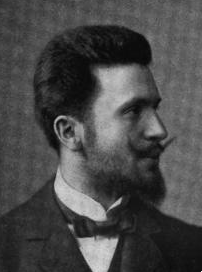|
Margaret Hillis
Margaret Eleanor Hillis (October 1, 1921, Kokomo, Indiana – February 5, 1998, Evanston, Illinois) was an American conductor. She was the founder and first director of the Chicago Symphony Chorus. Life Hillis was born in Kokomo, Indiana, in 1921."Hillis, Margaret (1921–)." '' Dictionary of Women Worldwide: 25,000 Women Through the Ages'', edited by Anne Commire and Deborah Klezmer, vol. 1, Yorkin Publications, 2007, p. 878. ''Gale eBooks''. Accessed 22 Aug. 2021. She began to study the piano at the age of five and continued with several other instruments, including woodwinds, brass, and double bass. She made her conducting debut, while still a student, as assistant conductor of her high school orchestra. After suspending her studies for two years during World War II to become a civilian flight instructor in Muncie, Indiana, Hillis received a bachelor of music degree in composition from Indiana University in 1947 and later studied conducting privately with Julius Herford and ... [...More Info...] [...Related Items...] OR: [Wikipedia] [Google] [Baidu] |
Kokomo, Indiana
Kokomo ( ) is a city in Indiana and the county seat of Howard County, Indiana, United States. It is the principal city of the Kokomo, Indiana Metropolitan Statistical Area, which includes all of Howard County, the Kokomo-Peru CSA, which includes Howard and Miami counties, as well as the North Central Indiana region consisting of six counties anchored by the city of Kokomo. Kokomo's population increased from 45,468 at the 2010 census to 59,604 in th2020 census Named for the Miami Ma-Ko-Ko-Mo who was called "Chief Kokomo", Kokomo first benefited from the legal business associated with being the county seat. Before the Civil War, it was connected with Indianapolis and then the Eastern cities by railroad, which resulted in sustained growth. Substantial growth came after the discovery of large natural gas reserves, which produced an economic boom in the mid-1880s. Among the businesses which the boom attracted was the fledgling automobile industry. A significant number of technical ... [...More Info...] [...Related Items...] OR: [Wikipedia] [Google] [Baidu] |
Chicago Symphony Orchestra
The Chicago Symphony Orchestra (CSO) was founded by Theodore Thomas in 1891. The ensemble makes its home at Orchestra Hall in Chicago and plays a summer season at the Ravinia Festival. The music director is Riccardo Muti, who began his tenure in 2010. The CSO is one of five American orchestras commonly referred to as the " Big Five". History In 1890, Charles Norman Fay, a Chicago businessman, invited Theodore Thomas to establish an orchestra in Chicago. Under the name "Chicago Orchestra," the orchestra played its first concert October 16, 1891 at the Auditorium Theater. It is one of the oldest orchestras in the United States, along with the New York Philharmonic, the Boston Symphony Orchestra and the Saint Louis Symphony Orchestra. Orchestra Hall, now a component of the Symphony Center complex, was designed by Chicago architect Daniel H. Burnham and completed in 1904. Maestro Thomas served as music director for thirteen years until his death shortly after the orchestra' ... [...More Info...] [...Related Items...] OR: [Wikipedia] [Google] [Baidu] |
National Academy Of Recording Arts And Sciences
The Recording Academy (formally the National Academy of Recording Arts and Sciences; abbreviated NARAS) is an American Learned society, learned academy of musicians, producers, recording engineers, and other musical professionals. It is famous for its Grammy Awards, which recognize achievements in the music industry of songs and music which are popular worldwide. The Recording Academy is a founding partner of the Grammy Museum, a non-profit organization whose stated mission is preserving and educating about music history and significance. The Recording Academy also founded MusiCares, a charity that states it serves to impact the health and welfare of the music community. The Recording Academy’s Advocacy team lobbies for music creators’ rights at the local, state, and federal levels. History The origin of the academy dates back to the beginning of the 1950s Hollywood Walk of Fame project. The Hollywood Chamber of Commerce asked the help of major recording industry executives ... [...More Info...] [...Related Items...] OR: [Wikipedia] [Google] [Baidu] |
Grammy
The Grammy Awards (stylized as GRAMMY), or simply known as the Grammys, are awards presented by the Recording Academy of the United States to recognize "outstanding" achievements in the music industry. They are regarded by many as the most prestigious, significant awards in the music industry worldwide. It was originally called the Gramophone Awards, as the trophy depicts a gilded gramophone. The Grammys are the first of the Big Three networks' major music awards held annually, and is considered one of the four major annual American entertainment awards, alongside the Academy Awards (for films), the Emmy Awards (for television), and the Tony Awards (for theater). The first Grammy Awards ceremony was held on May 4, 1959, to honor the musical accomplishments of performers for the year 1958. After the 2011 ceremony, the Recording Academy overhauled many Grammy Award categories for 2012. History The Grammys had their origin in the Hollywood Walk of Fame project in the 1950s. ... [...More Info...] [...Related Items...] OR: [Wikipedia] [Google] [Baidu] |
Carnegie Hall
Carnegie Hall ( ) is a concert venue in Midtown Manhattan in New York City. It is at 881 Seventh Avenue (Manhattan), Seventh Avenue, occupying the east side of Seventh Avenue between West 56th Street (Manhattan), 56th and 57th Street (Manhattan), 57th Streets. Designed by architect William Burnet Tuthill and built by philanthropist Andrew Carnegie, it is one of the most prestigious venues in the world for both classical music and popular music. Carnegie Hall has its own artistic programming, development, and marketing departments and presents about 250 performances each season. It is also rented out to performing groups. Carnegie Hall has 3,671 seats, divided among three auditoriums. The largest one is the Stern Auditorium, a five-story auditorium with 2,804 seats. Also part of the complex are the 599-seat Zankel Hall on Seventh Avenue, as well as the 268-seat Joan and Sanford I. Weill Recital Hall on 57th Street. Besides the auditoriums, Carnegie Hall contains offices on its t ... [...More Info...] [...Related Items...] OR: [Wikipedia] [Google] [Baidu] |
Symphony No
A symphony is an extended musical composition in Western classical music, most often for orchestra. Although the term has had many meanings from its origins in the ancient Greek era, by the late 18th century the word had taken on the meaning common today: a work usually consisting of multiple distinct sections or movements, often four, with the first movement in sonata form. Symphonies are almost always scored for an orchestra consisting of a string section (violin, viola, cello, and double bass), brass, woodwind, and percussion instruments which altogether number about 30 to 100 musicians. Symphonies are notated in a musical score, which contains all the instrument parts. Orchestral musicians play from parts which contain just the notated music for their own instrument. Some symphonies also contain vocal parts (e.g., Beethoven's Ninth Symphony). Etymology and origins The word ''symphony'' is derived from the Greek word (), meaning "agreement or concord of sound", "concert of ... [...More Info...] [...Related Items...] OR: [Wikipedia] [Google] [Baidu] |
Gustav Mahler
Gustav Mahler (; 7 July 1860 – 18 May 1911) was an Austro-Bohemian Romantic composer, and one of the leading conductors of his generation. As a composer he acted as a bridge between the 19th-century Austro-German tradition and the modernism of the early 20th century. While in his lifetime his status as a conductor was established beyond question, his own music gained wide popularity only after periods of relative neglect, which included a ban on its performance in much of Europe during the Nazi era. After 1945 his compositions were rediscovered by a new generation of listeners; Mahler then became one of the most frequently performed and recorded of all composers, a position he has sustained into the 21st century. Born in Bohemia (then part of the Austrian Empire) to Jewish parents of humble origins, the German-speaking Mahler displayed his musical gifts at an early age. After graduating from the Vienna Conservatory in 1878, he held a succession of conducting posts of rising ... [...More Info...] [...Related Items...] OR: [Wikipedia] [Google] [Baidu] |
Sir Georg Solti
Sir Georg Solti ( , ; born György Stern; 21 October 1912 – 5 September 1997) was a Hungarian-British orchestral and operatic conductor, known for his appearances with opera companies in Munich, Frankfurt and London, and as a long-serving music director of the Chicago Symphony Orchestra. Born in Budapest, he studied there with Béla Bartók, Leó Weiner and Ernő Dohnányi. In the 1930s, he was a répétiteur at the Hungarian State Opera and worked at the Salzburg Festival for Arturo Toscanini. His career was interrupted by the rise of the Nazis' influence on Hungarian politics and, being of Jewish background, he fled the increasingly harsh Hungarian anti-Jewish laws in 1938. After conducting a season of Russian ballet in London at the Royal Opera House he found refuge in Switzerland, where he remained during the Second World War. Prohibited from conducting there, he earned a living as a pianist. After the war, Solti was appointed musical director of the Bavarian State O ... [...More Info...] [...Related Items...] OR: [Wikipedia] [Google] [Baidu] |
Arthur Honegger
Arthur Honegger (; 10 March 1892 – 27 November 1955) was a Swiss composer who was born in France and lived a large part of his life in Paris. A member of Les Six, his best known work is probably ''Antigone'', composed between 1924 and 1927 to the French libretto by Jean Cocteau based on the tragedy ''Antigone'' by Sophocles. It premiered on 28 December 1927 at the Théâtre Royal de la Monnaie with sets designed by Pablo Picasso and costumes by Coco Chanel. However, his most frequently performed work is probably the orchestral work ''Pacific 231'', which was inspired by the sound of a steam locomotive. Biography Born Oscar-Arthur Honegger (the first name was never used) to Swiss parents in Le Havre, France, he initially studied harmony with Robert-Charles Martin (to whom he dedicated his first published work and violin in Le Havre. After studying for two years at the Zurich Conservatory, he enrolled in the Paris Conservatoire from 1911 to 1918, studying with both Charl ... [...More Info...] [...Related Items...] OR: [Wikipedia] [Google] [Baidu] |
Requiem (Verdi)
The ''Messa da Requiem'' is a musical setting of the Catholic funeral mass (Requiem) for four soloists, double choir and orchestra by Giuseppe Verdi. It was composed in memory of Alessandro Manzoni, whom Verdi admired. The first performance, at the San Marco church in Milan on 22 May 1874, marked the first anniversary of Manzoni's death. The work was at one time referred to as the Manzoni Requiem. Considered too operatic to be performed in a liturgical setting, it is usually given in concert form of around 90 minutes in length. Musicologist David Rosen calls it "probably the most frequently performed major choral work composed since the compilation of Mozart's Requiem". Composition history After Gioachino Rossini's death in 1868, Verdi suggested that a number of Italian composers collaborate on a ''Requiem'' in Rossini's honor. He began the effort by submitting the concluding movement, the " Libera me". During the next year a '' Messa per Rossini'' was compiled by Verdi and twelv ... [...More Info...] [...Related Items...] OR: [Wikipedia] [Google] [Baidu] |
Giuseppe Verdi
Giuseppe Fortunino Francesco Verdi (; 9 or 10 October 1813 – 27 January 1901) was an Italian composer best known for his operas. He was born near Busseto to a provincial family of moderate means, receiving a musical education with the help of a local patron. Verdi came to dominate the Italian opera scene after the era of Gioachino Rossini, Gaetano Donizetti, and Vincenzo Bellini, whose works significantly influenced him. In his early operas, Verdi demonstrated a sympathy with the Risorgimento movement which sought the unification of Italy. He also participated briefly as an elected politician. The chorus "Va, pensiero" from his early opera ''Nabucco'' (1842), and similar choruses in later operas, were much in the spirit of the unification movement, and the composer himself became esteemed as a representative of these ideals. An intensely private person, Verdi did not seek to ingratiate himself with popular movements. As he became professionally successful, he was able ... [...More Info...] [...Related Items...] OR: [Wikipedia] [Google] [Baidu] |
Bruno Walter
Bruno Walter (born Bruno Schlesinger, September 15, 1876February 17, 1962) was a German-born conductor, pianist and composer. Born in Berlin, he escaped Nazi Germany in 1933, was naturalised as a French citizen in 1938, and settled in the United States in 1939. He worked closely with Gustav Mahler, whose music he helped to establish in the repertory, held major positions with the Leipzig Gewandhaus Orchestra, New York Philharmonic, Concertgebouw Orchestra, Salzburg Festival, Vienna State Opera, Bavarian State Opera, Staatsoper Unter den Linden and Deutsche Oper Berlin, among others, made recordings of historical and artistic significance, and is widely considered to be one of the great conductors of the 20th century. Biography Early life Born near Alexanderplatz in Berlin to a middle-class Jewish family, he began his musical education at the Stern Conservatory at the age of eight, making his first public appearance as a pianist when he was nine; he performed a concer ... [...More Info...] [...Related Items...] OR: [Wikipedia] [Google] [Baidu] |


.jpg)





